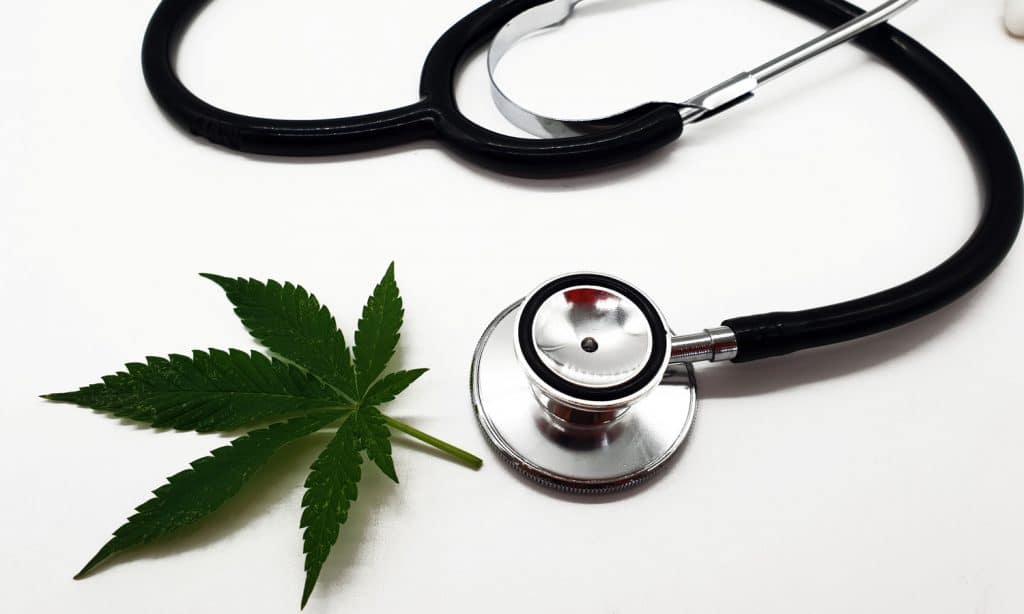With more research on the horizon, those suffering with severe depression may find reprieve in ketamine and cannabis.
Used for thousands of years, cannabis ignites the CB1 and CB2 receptors, offering positive effects throughout the human body. Discovered as early as the 1960s, ketamine is often prescribed to help individuals with mental illness, such as depression. Both help the body experience euphoria, and recently, researchers studied the use of both drugs to better understand their links and interactions.
In 2015, the journal Biological Psychiatry found that one patient experienced an interaction with their bipolar drugs. While all drugs have the risk of interaction, a lack of available studies and research keep the specifics around drug interactions with cannabis difficult to pinpoint.
A 2012 study found exactly the opposite. In the case of a 56-year-old woman suffering from severe neuropathic pain, cannabis mixed with ketamine offered deep relief. Published in the Journal of Clinical Anesthesia, researchers found that despite the use of opiates, the woman’s pain steadily increased. After stopping pain medication due to side effects, her team started her on oral cannabis (0.5 grams in cookies). This resulted in “the reduction of pain intensity from 8 to 5 on the pain scale. Adding ketamine cream twice daily further reduced the pain (pain scale: 2 to 3).” The authors cited that, “Ketamine and cannabis may act synergistically because cross-talk exists, and the cannabinoid and the opioid receptor systems also have synergistic interactions.” This begs the question, “Why do some drugs interact with cannabis while others do not?”
According to researchers, it’s all in the compounds.
Understanding cannabis’s interactions
A 2019 study published in the journal Medicines found certain drugs seemed to interact with cannabis in oncology patients in many ways. Researchers explained that, “Drug interactions may result from chemical reactions between different components or modifications by certain components of certain biochemical pathways involved in the action or metabolism of related drugs.” Researchers also indicated that cannabis’s interactions could stem from how the compound was grown and prepared, as well as how its chemical make-up joined another compound.
RELATED: Does Marijuana Have Any Dangerous Drug Interactions?
“Cannabis has been used in various forms as crude extracts or purified ingredients (with different THC/cannabinoids ratios); therefore, drug interactions caused by cannabis depend not only on the drugs involved but also the chemical components/profiles of the cannabis preparations used.”
The study directly tied vaporized cannabis to an increase in the pain-relieving effects of opioids as well. Drug interactions are not always negative and health practitioners often look to stack or co-prescribe drugs to help with certain symptoms. The study additionally cited an earlier research project which found, “a synergistic interaction between gabapentin and THC, where gabapentin not only improved the THC therapeutic window, but also effectively enhanced its anti-allodynic activity.”
Researchers concluded that, “There is still limited data on significant drug interactions caused by medicinal cannabis. Thus, the evidence-based clinical guidelines on interactions of drugs with medicinal cannabis are still lacking.”

So, what is it about cannabis and ketamine?
According to the Multidisciplinary Association for Psychedelic Studies (MAPS), they believe both cannabis and ketamine have the potential to treat certain conditions, with some considerations.
“In 2006, scientists from the US National Institute of Mental Health injected 17 patients suffering from depression — and who had failed at least six previous drug treatments – with either a low dose of ketamine or a placebo. More than two thirds responded favorably to the drug within a day.”
RELATED: Will Psilocybin Clinics Be The Next Big Thing In Treating Depression?
Often prescribed for veterans or those with PTSD, ketamine can be a lifeline for individuals experiencing mental illness. However, it can also be addicting. One veteran, Sean Kiernan, President of the Weed for Warriors Project, stated that, “Ketamine was the most effective drug I’ve ever taken for suicidal thoughts — but it is not a long-term medicine you should use. I got psychologically addicted to it for four years.” Kiernan believes cannabis has the potential to help many veterans and advocates for its use not only because it’s non-addictive, but it can be a better alternative to ketamine, which can alter the mind and create dependency.
With more research on the horizon, those suffering with severe depression may find reprieve in ketamine and cannabis, but only after discussing potential interactions with their healthcare teams.


